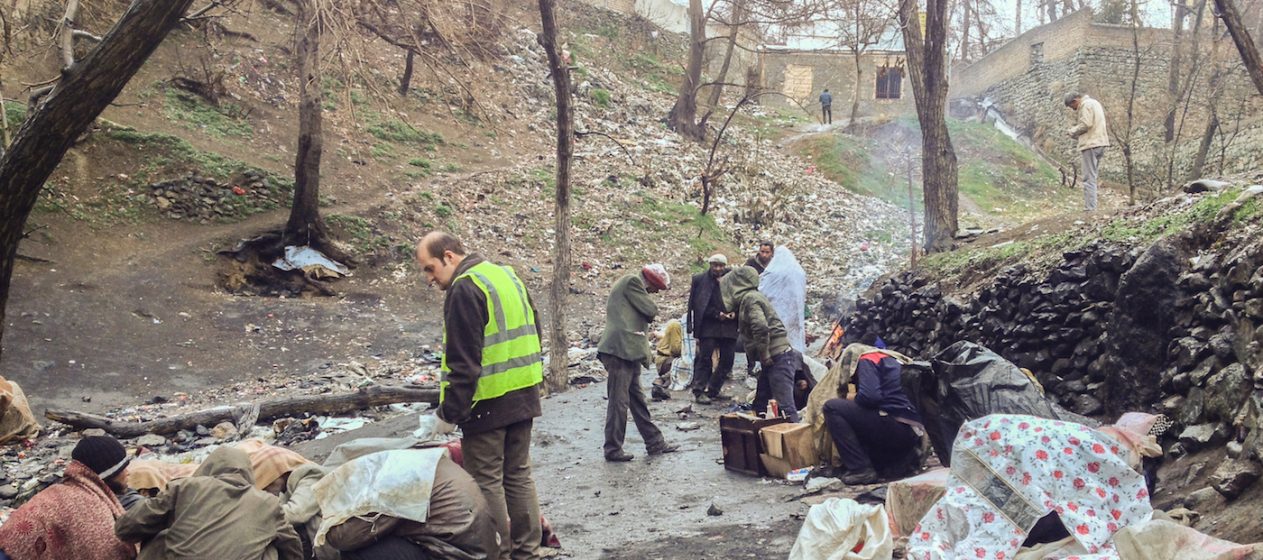Researcher: Maziyar Ghiabi (Supervised by Dr Philip Robins)
Funder: Wellcome Trust Society & Ethics
The relationship between drugs and politics is an unusual one. No other material product has been the object of such systematic control by states, and this has occurred with exceptional conformity across the globe.
Iran represents an outstanding case study of the War on Drugs; it is at the crossroads of international drug routes, it has one of the world highest rates of drug ‘addiction’ (estimated at between 2-3% and 6-7% of the entire population), and it is now progressively becoming a producer country for synthetic, industrial drugs, such as methamphetamines (known as crystal meth or shisheh, ‘glass’).
The Iranian state draws its legitimacy from religious morality and social puritanism, and so the issue of drugs presents a substantial challenge. How has the state responded?
This research reveals that drug addiction has produced a crisis in Iran, with surprising effects. While the issue of drug trafficking has been dealt with using security-oriented and militaristic methods, the Islamic Republic has, since the early 2000s implemented programmes support for drug users, providing everything from clean syringes, injecting paraphernalia, condoms and substitution drugs (such as methadone). This has institutionalised ‘harm reduction’ in the laws of the state, and has also made these services available to categories of people, such as prisoners, sex workers and vagrants, who have been otherwise regarded as immoral, deviant and ‘counter-revolutionary’. Perhaps most surprisingly, most of this progressive programme expanded markedly during the mandate of Iran’s ‘neo-con’ president Mahmud Ahmadinejad.
This research is based on extensive fieldwork carried out in Iran between 2012 and 2015, which also allowed engagement with several national and international drug policy agencies. In addition to examining press coverage of the issue dating from 1979-2014, Maziyar Ghiabi has conducted extensive interviews with current and former drug users, and has visited methadone clinics, drug-using and homeless shelters, as well as licensed and unlicensed treatment camps. The project has also involved interviews with former and current government officials, representatives from the UN and NGOs, and medical experts.





